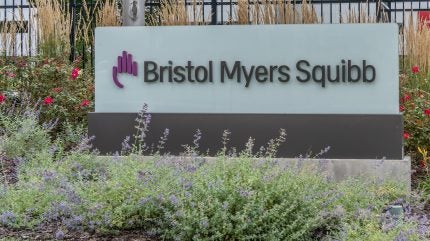
Despite the recent controversies surrounding chimeric antigen receptor (CAR)-T therapies, a US Food and Drug Administration (FDA) committee voted eight to three in favour of approval of Bristol Myers Squibb (BMS) and 2seventy bio’s Abecma (idecabtagene vicleucel) in patients with relapsed or refractory multiple myeloma (r/r MM).
The FDA has not yet assigned a new target action date for the review of the supplemental biologics licence application (sBLA) for Abecma for this patient population of triple-class exposed r/r MM. The FDA had previously assigned a Prescription Drug User Fee Act (PDUFA) target action date of 16 December 2023, but the agency conveyed that it would miss the target date in November 2023.

Discover B2B Marketing That Performs
Combine business intelligence and editorial excellence to reach engaged professionals across 36 leading media platforms.
Around the same period, the agency had started an investigation to review the safety of chimeric antigen receptor (CAR)-T cell immunotherapies following reports of T cell malignancies in patients who received these immunotherapies. Abecma was one of the six therapies included in the inquiry.
Furthermore, the agency was apprehensive of the ‘higher rate of early deaths’ for up to 15 months in the Abecma arm in the Phase III KarMMa-3 trial (NCT03651128), compared to the standard of care arm, as per the briefing documents. Another limitation noted in the documents was that a portion of the patients in the standard-of-care arm crossed over to receive Abecma. Because of this, ahead of the meeting, a key topic of discussion was whether the analysis provided ‘convincing evidence’ that Abecma provided an overall survival benefit, with the regulatory agency saying this evidence was not present, in the briefing document.
The FDA advisory committee (AdCom) ultimately decided that the benefits outweigh the risks for Abecma as an earlier-line therapy in patients with multiple myeloma.
An AdCom is convened upon an FDA request to review and evaluate the safety and efficacy data of a particular therapy. However, the AdCom recommendations are non-binding, with the final decision made by the FDA. The agency rarely contradicts AdCom’s recommendations, although there have been a few cases where this has happened. In 2021, the agency granted accelerated approval to Biogen and Eisai’s Aduhelm (aducanumab-avwa) for treating Alzheimer’s disease despite a negative recommendation by an AdCom.

US Tariffs are shifting - will you react or anticipate?
Don’t let policy changes catch you off guard. Stay proactive with real-time data and expert analysis.
By GlobalDataIn addition to Abecma, the FDA committee also backed the use of Johnson and Johnson’s Carvykti (ciltacabtagene autoleucel, cilta-cel) to treat r/r MM. In response to both the positive decisions, Dr Gwen Nichols, chief medical officer of The Leukemia & Lymphoma Society, said: “Blood cancer is complex and patient care is highly individualised. The more safe and effective options available to oncologists and patients at all stages of their cancer, the better.”
All the controversies may have impacted Abecma sales last year, with 2seventy bio forecasting the therapy to generate less than the $470m-$570m range that was previously projected. Despite the stark forecast, the therapy pulled in $472m in global sales in 2023, as per BMS’s Q4 financials.
The multiple myeloma market is forecasted to generate $21.6bn in sales across the eight major pharmaceutical markets (US, France, Germany, Italy, Spain, UK, Japan, and China), as per GlobalData’s analysis. Approval as an early-line therapy may boost Abecma’s market share in the multiple myeloma indication.
GlobalData is the parent company of Pharmaceutical Technology.




